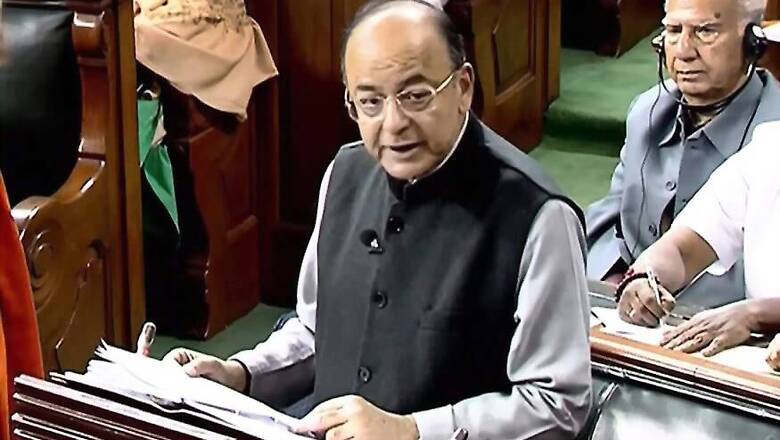
views
New Delhi: After finance minister Arun Jaitley announced the world’s largest government-funded health care programme – the National Health Protection Scheme – in his budget speech on Wednesday, the biggest question being asked by all, especially the opposition, was - “where will the money come from?”
The scheme aims to provide 10 crore poor families a health cover of up to Rs 5 lakh per family per year for secondary and tertiary care hospitalisation. According to senior Congress leader and former finance minister P Chidamabaram, the government would need Rs 5 lakh crore annually if an average payout of Rs 50,000 for all 10 crore families is considered.
But Jaitley is not too worried about the source of funds, and believes the reintroduction of long term capital gains tax can not only support the health scheme, but also foot the bill for the other major announcement in his budget – minimum support price (MSP) payment to farmers that is 1.5 times the production cost.
The finance minister revealed this during a talkathon after his budget presentation, in which he answered the questions of the general public.
“I think both MSP and healthcare can be supported only out of the long term capital gains taxation,” he said in response to a question on the need to tax capital gains at a time when the government is trying to attract more investments.
He said that the proposal for re-introduction of the levy was under consideration for a long time. “Rs 3.67 lakh crore was the exempted income on long term capital gains in the last assessment year alone. A bulk of this came from large investors, be it corporates, limited liability partnerships or foreign institutional investors,” he said.
“Earlier we needed this money to enter the market and so there was no capital gains tax. Now, the market has matured. So, we took a conscious decision that capital gains up to Rs 1 lakh will be exempt to protect the small investors. If you gain more than that, you pay 10 per cent tax,” he added.
The imposition of this new tax, Jaitley believes, would not add to the burden of the middle class. “Most of the beneficiaries of there being no tax on long-term capital gains were the wealthiest. This was a subsidy for the richest,” he said, adding that the government decided to divert this “subsidy” from the richest and for healthcare or to pay farmers the MSP.
But he refused to speculate how much money will be required to fund the scheme. He said that the idea was mooted by the NITI Aayog, which had done a detailed study into universal healthcare. “We have started by making it available to 10 crore families on the bottom ladder,” he said, hinting that if the scheme succeeds, it could later grow into a universal healthcare system.
Jaitley also rejected the criticism that the budget was anti-middle class and pointed out the steps his government had taken to alleviate the tax burden in the previous budgets and otherwise.
“Take the last four years in totality. In the first year, I increased the exemption limit from Rs 2 lakh to Rs 2.5 lakh. Two years ago, we introduced a step so that those with an income of Rs 3 lakh don’t have to pay any tax. Last year, we brought down the tax rate to 5 per cent for income between Rs 2.5 lakh and Rs 5 lakh to nudge people into the tax net,” he said.















Comments
0 comment